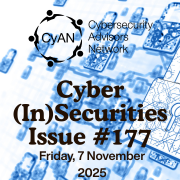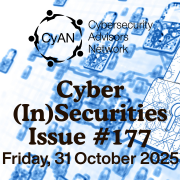Week 45 – Zip Slip Hits Argo Workflows
03 – 09 Nov 2025 Our CVE of the Week, CVE-2025-62156, is about Argo Workflows, which is an open source container-native workflow engine for orchestrating complex, parallel jobs on Kubernetes. Critical flaw has been found in versions prior to 3.6.12 and versions 3.7.0 through 3.7.2 …






